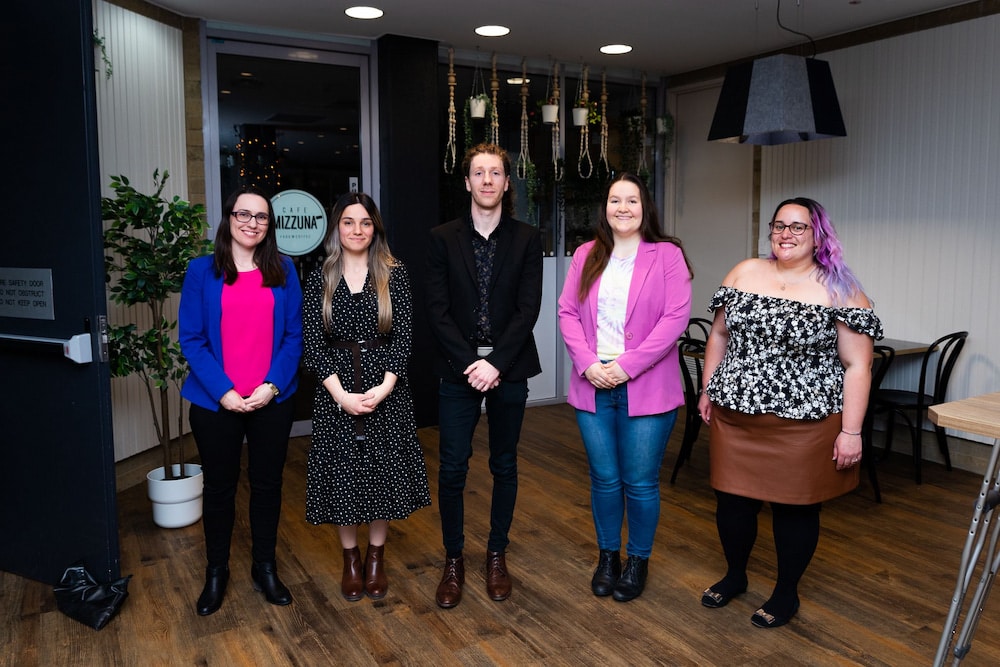Three minutes to summarise an 80,000-word PhD thesis? That was the challenge for six young researchers in the University of Canberra’s Three Minute Thesis (3MT) competition last night.
Robotics student David Hinwood won first place.
His PhD research, Using human-inspired manipulation to battle textile waste, explores the potential of using robots in textile recycling, empowering textile recyclers to scale-up the amount of textile waste they can divert from landfills.
Mr Hinwood, a final year PhD candidate at UC, said it was an honour to receive the first-place award, worth $4,000, and that the prize money will contribute greatly to furthering his research.
“I wasn’t expecting to be named the winner tonight, so it was really nice, particularly since the other finalists have such strong research,” Mr Hinwood said.
The competition was developed by the University of Queensland to cultivate PhD students’ academic, presentation, and research communication skills. An 80,000-word thesis takes nine hours to present, but participants have only three minutes to explain their research and convince the judges and audience of its significance.
Professor Lucy Johnston, UC Deputy Vice-Chancellor, Research and Enterprise, said the international competition “presents our PhD candidates with the considerable challenge of clearly explaining their research in an engaging way”.
“Their language needs to be suitable for a general audience, and they only have three minutes to present.”
From here, Mr Hinwood will go to the Asia-Pacific 3MT Final at UQ in October.
“I’m very excited to go and pitch at the next stage of the competition in Queensland,” Mr Hinwood said.
His research focuses on giving robots the dexterous skills needed to handle fabric. Australians send six tonnes of clothing to landfills every 10 minutes, releasing toxic greenhouse gases (such as methane) as fabric decomposes. To alleviate the damage of discarded garments, textile recycling presents a promising avenue to prevent used clothing from going to landfills as old clothing is highly recyclable. Sorting used clothing, however, into the appropriate recycling is dangerous and economically infeasible with human labour. Robots would be more effective for textile-sorting, except they are not effective manipulators of fabric, Mr Hinwood believes.
Natalie Downes, a PhD student in the Centre for Sustainable Communities in the Faculty of Education, received the second-place award for her research Is geographical narcissism creating rural education disadvantage?. Ms Downes was also voted the People’s Choice winner.
Ms Downes has developed and trialled a tool that helps measure and remedy city biases in education. Every year, rural kids are told by education authorities that they are less intelligent than kids in the city. But what, she asks, if education authorities have got it wrong, and achievement gaps are created because the education system is biased towards city perspectives? Her tool provides evidence-based alternatives to city biases that transform the way rural places are represented in education. This contributes towards achieving more just and equitable outcomes for rural kids in schooling, she argues.



